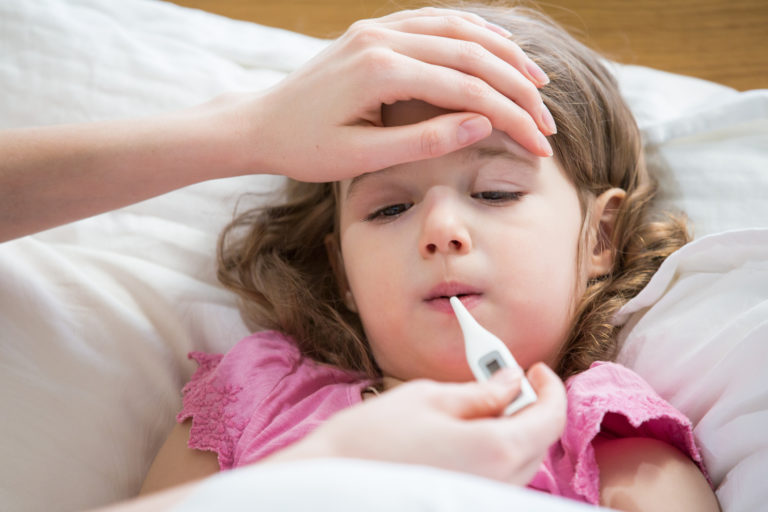 Fevers are part of childhood. The average child will come down with several viruses and fevers every year. Knowing what to do about a fever and when to call the doctor can give you peace of mind as a parent, and keep your child safe from illnesses and infections.
Fevers are part of childhood. The average child will come down with several viruses and fevers every year. Knowing what to do about a fever and when to call the doctor can give you peace of mind as a parent, and keep your child safe from illnesses and infections.
Use this resource as a basic guide on kids and fevers. When in doubt, call the doc!
What to Do About a Fever
If your child feels hot and the thermometer confirms that he or she has a fever, first stay calm. A fever is a way for the body to combat an infection by raising the temperature to kill the bug. Fevers are harmless in the majority of cases, and will typically go down on their own after one to three days. Make your child is as comfortable as possible until the fever subsides.
Give your child acetaminophen or ibuprofen to lower the temperature, depending on your child’s age (ibuprofen for children at least six months old). Never give a child with a fever aspirin, as this could cause Reye’s syndrome. Use a cool compress on your child’s head, or give your child a lukewarm sponge bath for 20 to 30 minutes. Do not make the water too cold, as this can lower the body temperature too quickly.
Even if your child has chills, don’t bundle him or her up in a lot of blankets. Instead, dress your child in light clothing and offer one light blanket. Provide plenty of fluids and water. Fevers are typically waiting games. Make your child safe and comfortable until the fever breaks. A fever might be scary, but in general, it won’t cause any harm. There are times, however, when a fever might require medical attention.
When to Worry About a Child Fever
A fever can be a symptom of something serious. For the most part, you can handle a fever on your own. In some cases, however, you should seek help from a pediatrician or emergency center. If your child is under the age of three months, seek help. Newborn fevers can be difficult to diagnose and treat. If the fever comes with a dark rash, your child could have an infection.
If your child is sleepy or irritable with a fever, it could point to a more serious problem. Severe pain and trouble breathing also deserve professional attention. As a general rule, call the doctor for fevers over 102 degrees Fahrenheit and for fevers lasting more than two days. Always trust your instincts and feel free to call your pediatrician when in doubt.
The information and content on our website should not be used as a substitute for medical treatment or advice from your doctor.




